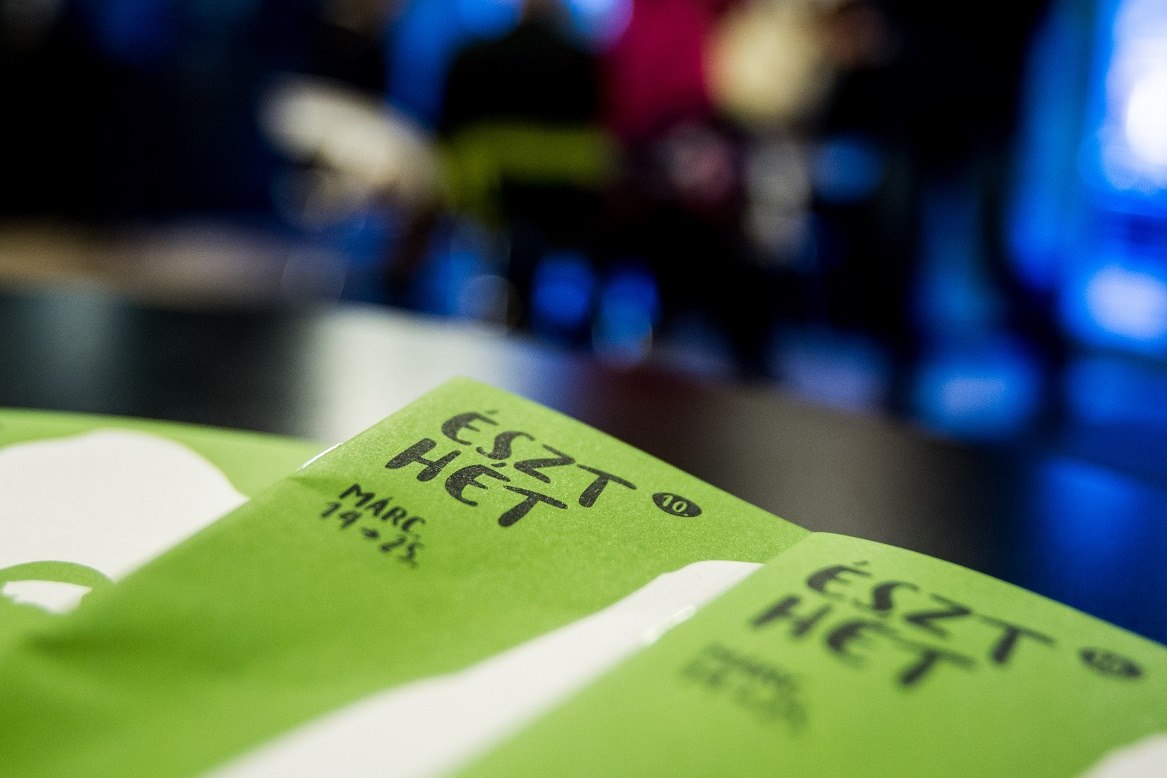
The Estonian Institute in Hungary has been in operation since 1998.
Alluding to the ever increasing domestic need, the Hungarian-Estonian Association, which had already been active for several years, the Finno-Ugric university faculties operating all over the country, as well as to the quantity and quality of Estonian literature that had been published in Hungarian, in the autumn of 1996 András Bereczki approached the Estonian Embassy, accredited to Hungary – but which at the time had its seat in Vienna – and whose head was Toivo Tasa, with the idea of establishing an Estonian cultural centre in Hungary.
The initial plans were followed by one and a half years of diplomatic preparatory work, which was hallmarked by visits from Jaak Allik, the minister of culture for the Republic of Estonia at the time and by the leadership of the Estonian Institute in Tallinn. The developing concept of an Estonian cultural centre in Hungary was lent confirmation during the presidential visit of 1997 by Estonia’s head of state at the time, Lennart Meri.
Budapest was the second city to be selected in the series of branch institutions of the Estonian Institute, since after the Estonian Institute for Finland, which operated in Helsinki, the Finno-Ugric linguistic ties were represented by the autonomous state of Hungary.
Soon after Budapest was nominated as the next seat, an appropriate venue was chosen: a flat on Bartók Béla Road in district XI was rented for the purpose. Since August 2008 the Estonian Institute in Hungary has received visitors in a new location, at 22 Falk Miksa Street.
The position of director at the Budapest branch institute was filled through a tender process. The competitive tender was aimed at the selection of a director whose task in addition to running the office was the proliferation of information on Estonia, the development and deepening of ties between Estonia and Hungary, the organisation of cultural events, and the fostering of the teaching of the Estonian language in Hungary. The openness of the tender was demonstrated by the fact that almost twenty applications were submitted to the tender placed in the two largest daily papers, from which a director for the branch institution was selected after a personal meeting with a delegation that came to Budapest from the Estonian Institute.
The official opening of the Estonian Institute in Hungary took place on 27 February 1998. The event was opened by Lora Listra, the director-general of the Estonian Institute, welcoming the audience, followed by speeches by Jaak Allik, the minister of culture of the Republic of Estonia, Bálint Magyar, the minister for education and culture of the Republic of Hungary, as well as by Gábor Bereczki, the president of the Hungarian-Estonian Association.
Judit Nagy, the first director of the new branch institute, was introduced at the opening; she filled the position from February 1998 to November 1998. From that latter date until December 2012 her work was carried on by Anu Kippasto and from January 2013 by Mónika Segesdi. The Estonian Institute in Hungary is now run by Kreet Paljas.
The Estonian Institute in Hungary operates on the basis of a Treaty based on Governmental Decree 130/1994 (X.14.) concluded between the Republic of Hungary and the Republic of Estonia.
Find out more about Estonian Institute in Hungary: http://www.esztorszag.hu/
